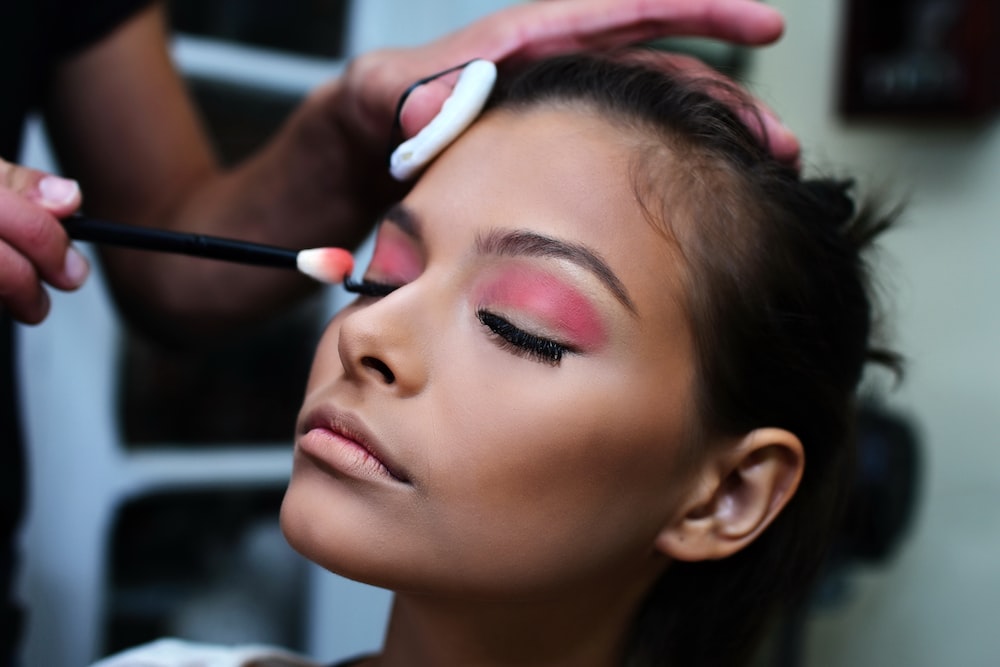
When models, entertainers, and presenters stand in front of cameras or an audience, make-up artists ensure they have suitable make up and hairstyles.
As a make up artist, you will be responsible for producing images and characters based on a brief utilising make-up, haircuts, and prosthetics.
You’ll be able to interpret clients’ make up requirements to generate both a creative and technically accurate visual depiction. This might vary from basic make up for a TV host to more complex historical make up or special effects.
You might freelance, work as an assistant to a more senior colleague, or be part of a make up design team.
Responsibilities
Throughout your apprenticeship, you may help:
- research and design make-up and hairstyles
- work to production designers’ notes and instructions
- tidy and style hair
- create special effects make-up
- take notes and photos for reference
- be on set to redo make-up and hair
- remove make-up and keep wigs and hairpieces in good condition.
Salary
- Apprentices should receive no less than the national minimum wage.
- Make-up artists working in fashion can earn £450 a day for an event like London Fashion Week, and around £275 for other events. For fashion editorial work head make-up artists earn £170 to £320 per day, depending on the designer.
- On major feature films, with budgets over £30million, a trainee make-up artist can earn £140 for a ten-hour day, while a key hair and make-up artist with several years’ experience, will earn £410.
Working hours
A typical working day includes long and unsocial hours, and shifts and weekend work are common.
Working on a film or television production entails being on site before shooting starts and remaining on set during filming to reapply make up.
Advance fittings are often required, but you will not be alone; working as part of a production team is an important aspect of the job.
Working environment
You could work at a TV studio, in a theatre, on a film set or at a film studio.
Qualifications
Qualifications you can achieve as an apprentice make up artist include:
- Level 2 Beauty Therapist – Entry requirements for this level include some GCSEs, usually including English and maths, or equivalent, for an intermediate apprenticeship. This qualification takes 15 months to complete.
Skills
On a make up artist apprenticeship, you’ll learn:
- design skills and knowledge
- the ability to work well with your hands
- artistic and creative flair
- the ability to work well with others
- to be thorough and pay attention to detail
- to be flexible and open to change
- excellent verbal communication skills
- the ability to use your initiative
- to be able to carry out basic tasks on a computer or hand-held device.
Employers
There are several industries that regularly employ make-up artists. Employers include:
- network and independent television
- film, video and advertising and commercial companies
- commercial and fashion photographers and, on a less regular basis, portrait photographers
- the wedding industry, for bridal make-up
- the medical profession, where a make-up artist may work with patients following injury or surgery.
Professional development
Informal education is equally as vital as formal education. In addition, you’ll learn that industry experience, whether paid or unpaid, is essential for professional development and job placement.
On-the-job training is common, and freelancers must manage their professional growth (CPD). Many make up artists believe that on-the-job training and experience are just as crucial, if not more important, than formal education.
Many artists and designers wish to hone or consolidate their skills to branch out into other areas of expertise or produce higher-quality work within their current field. Further education enables you to experiment, diversify, or get the specialised knowledge you need. Unfortunately, there are limited training alternatives available, most of which are in commercial schools and must be paid for.
Make up artists may take short courses in specialised subjects like special effects.
Career prospects
Working as a make up artist will teach you that there is no obvious road to success. Because the profession is self-sufficient, individuals may alternate between trainee make up assistant, make up artist, chief/key make up artist, and designer duties depending on their experience and confidence in a subject.
As a consequence, you may charge different rates for different jobs. Decisions on whether to pursue more pay and bid on project work in a more senior position are highly impacted by your confidence and the experience and talent you think you have to offer.
Although many ambitious individuals seek the make up director role, many freelance artists who still need to obtain this position have a self-sufficient and lucrative career.
You may specialise in one aspect of the job, such as wigs or prosthetics, body painting, or making contact lenses or teeth.
